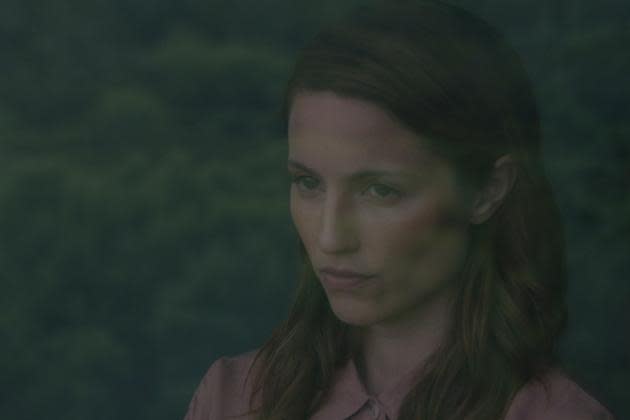Dianna Agron Explores the ‘Biological Clock’ Pressures

Dianna Agron is best known for her breakout role in “Glee,” of course, as well as in the indie film “Shiva Baby” — roles of comedy and drama, but never horror/psychological thriller.
The actress decided it was high time to remedy that, and is seen now in “Clock,” out on Hulu, which tells the story of a woman in her 30s who, because she is content without having children, is told by family and friends that her “biological clock” must be broken. She enrolls in a clinical trial to try and “fix” this “problem” — which is where things get frightening.
More from WWD
As a thirtysomething woman without children, Agron identified immediately with the pressures her character experiences, and was drawn to the role both for the challenge of the genre as well as the subject matter.
“I am a woman who is starting to be in her late 30s. From the moment I turned 30, there was just an onset of thoughts, questions and opinions about my choices as it related to my biological clock. That’s really a thing, and I just was so taken by that, by what that meant, and how it made me feel,” Agron says. “Sometimes it would come from people that were very close to me. Sometimes it would come from complete strangers and you just think, ‘what a wild experience. I’m living my life authentically and people are asking questions and making me feel as if I am missing something about my own personal journey.’”
Agron was surprised by the physicality of the role, and said she balanced it out with gentle self-care in her off time.
“You’ve got to really take care of your body on the two days that you have off on the weekends. I think I just melted into a bed and dragged myself off to go swimming, or go on a walk, or do things that were kind of nice and gentle. But I had bruises and cuts and all kinds of things all over my body,” she says.
“It wasn’t a long shoot, but in the beginning of shooting it was kind of still chilly, and by the end it was blazing hot. So, you’d be driving in the car and just like the sun beating down on you, and understanding that you’re getting wildly dehydrated and drinking electrolytes.”
She said she hopes viewers come away from the film with a renewed sense of compassion around allowing women to make their own choices about having children — or not.
“Understanding of perhaps how to be more supportive, kinder to people around them that are not making the choices that they are, and to find comfort in the fact that a personal choice is a personal choice,” Agron says of her takeaway. “If somebody is making a choice that doesn’t look anything like your choices, that is perfectly OK. We should all be living the lives that we want to live, and only offering as much support and kindness as possible.”
Best of WWD

